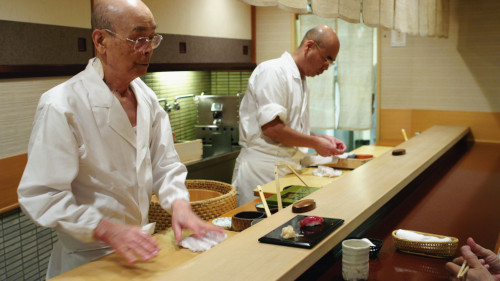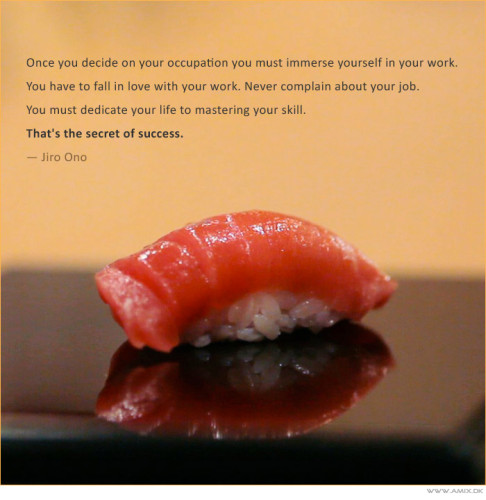Jiro Dreams of Sushi
10 seats, a toilet shared with other shops and restaurants, and they only serve ludicrously expensive sushi. 85-year-old Jiro Ono runs his 3-Michelin-Star establishment and is also the head chef. He is the very definition of a perfectionist.
The documentary begins with Jiro talking about, predictably enough, dreaming of sushi. The story is built up with a collection of interviews of Jiro, his two adult sons, and the many people with whom Jiro interacts in the day-to-day running of his restaurant.
A cynical man might watch this and feel like the film is just one giant advertisement for Jiro’s restaurant, documenting every aspect of the production of his sushi, down to the finest little details, but I don’t take that view. If this film is anything, it is a homage to perfectionism and dedication to a trade. It is a modern day antidote to a world of consumerism, commodification, and detachment experienced by so many.
Jiro represents a lifestyle which has gone out of style. He left home when he was very young and began learning about making sushi. He put in a great deal of hard work, and eventually became an exceptional sushi chef – some have even called him the best in the world. According to interviews, he expects his apprentices to work for at least 10, and often up to 20 years before they can be considered master sushi chefs. Both of his sons are also sushi chefs, and one has even started his own sushi restaurant (two michelin stars) which is literally a mirror image of his father’s (Jiro is left-handed, while his sons are both right-handed).
It is not so much that specialisation has gone out of style, but this kind of perfectionism largely has. Beyond a certain point, the return you get from the amount of extra effort you put in is… not worth the extra effort. The only common exceptions to this common calculus happen in elite sport, and as someone who has occasionally been involved with elite sport, I was immediately able to relate to Jiro’s quest for perfection. Everything from the type of rice used, the temperature of the fish, the consistency of the egg, and even how much you massage the octopus is monitored and adjusted to maximise the quality of the end product.
This massive departure from standard business culture is quite refreshing. In Jiro’s world the relationships he has with his suppliers is important, and they’re quite personal. Loyalty matters. The cost of things in monetary terms is only mentioned in passing, everything is geared towards achieving the highest possible quality. Everything is long-term. Jiro doesn’t make sushi for money, he does it because he loves it. He loves it so much that he dreams about it.
The film is engaging and relatable. Despite the subject matter seeming rather simple, David Gelb weaves together a full 81 minutes of beautiful documentary storytelling. Not only do I now want to eat at Sukibayashi Jiro, but I’m quite inspired by this man, who at 85 years of age still goes to work every day in an effort to perfect the art of sushi for no other reason than because he loves it.



Leave a comment